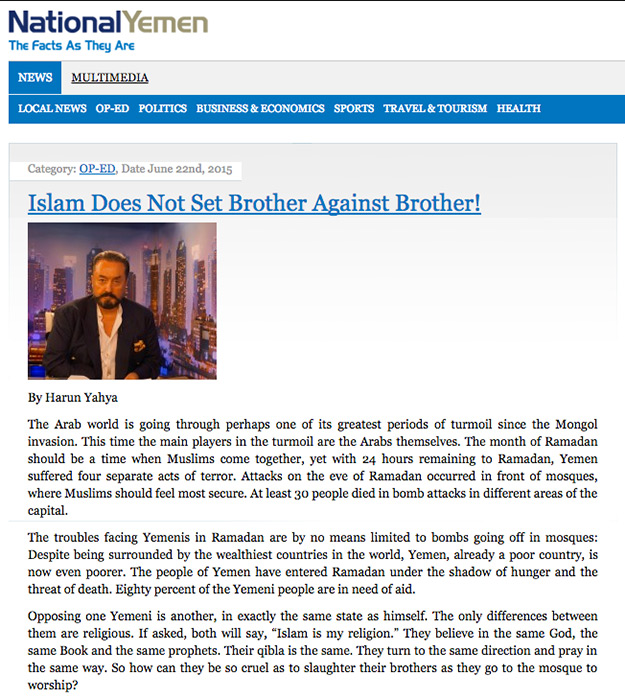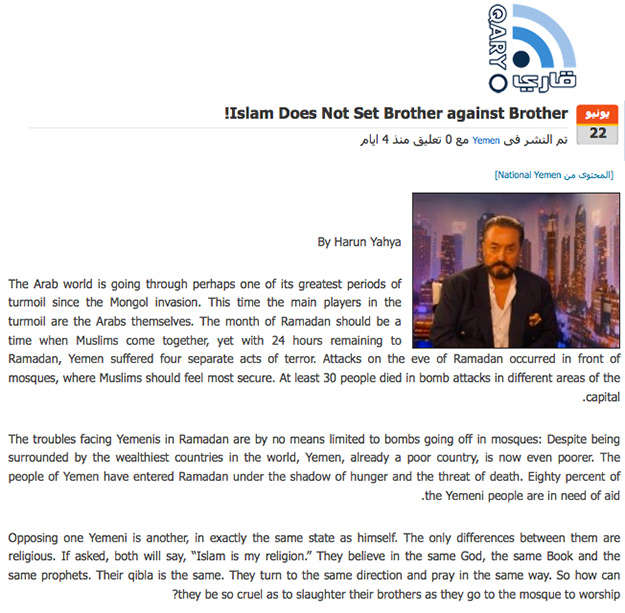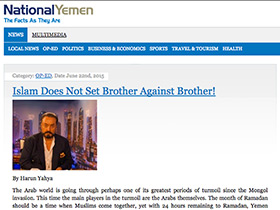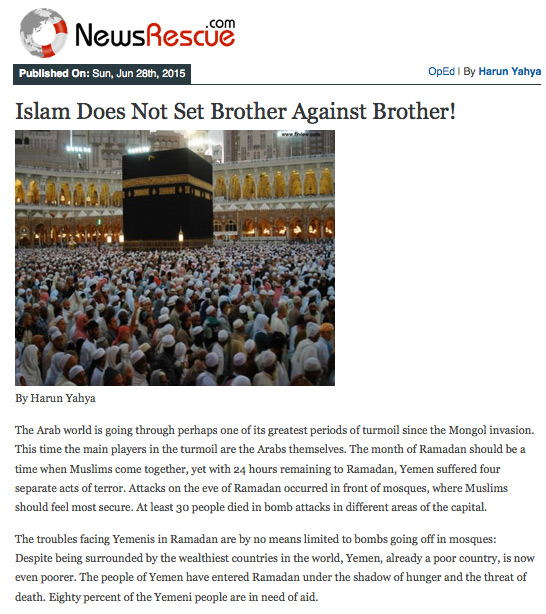
The Arab world is going through perhaps one of its greatest periods of turmoil since the Mongol invasion. This time the main players in the turmoil are the Arabs themselves. The month of Ramadan should be a time when Muslims come together, yet with 24 hours remaining to Ramadan, Yemen suffered four separate acts of terror. Attacks on the eve of Ramadan occurred in front of mosques, where Muslims should feel most secure. At least 30 people died in bomb attacks in different areas of the capital.
The troubles facing Yemenis in Ramadan are by no means limited to bombs going off in mosques: Despite being surrounded by the wealthiest countries in the world, Yemen, already a poor country, is now even poorer. The people of Yemen have entered Ramadan under the shadow of hunger and the threat of death. Eighty percent of the Yemeni people are in need of aid.
Opposing one Yemeni is another, in exactly the same state as himself. The only differences between them are religious. If asked, both will say, “Islam is my religion.” They believe in the same God, the same Book and the same prophets. Their qibla is the same. They turn to the same direction and pray in the same way. So how can they be so cruel as to slaughter their brothers as they go to the mosque to worship?
In my article titled “The Correct Solutions are Possible Only When Problems Are Identified Accurately,” I concentrated on the possible reasons for the situation in Yemen. I said that among the many political and social factors involved, there were two basic causes. I described how the first cause was Muslims’ failure to be united among themselves; in my last article I described how that difficulty could be overcome.
I said that the second cause was people living by an Islam that they equate with values that do not appear in the Qur’an; they have misinterpreted Islam. Concepts such as democracy, freedom of ideas, love, respect, affection, friendship and altruism have no place in this false conception of Islam that dominates many countries where Muslims live, including Yemen. That faith is not Islam, but radicalism. The advocates of that superstitious faith, be they Shiite of Sunni, are saying, “I have no tolerance for your ideas. Accept mine, or be destroyed!”
This intolerant and radical way of thinking has generally come to be regarded as representing Islam, especially as of late. Certain circles have bestowed the name of Islam upon radicalism and they have turned their fears of radicalism in the direction of Islam, and hostility to Islam has thus spread far and wide. People are unaware that their fears stem not from Islam itself, but from radicalism. They fail to see that the faith created by the peddlers of superstition has appeared under the guise of Islam, because nobody has told them that this is not what Islam really is. Neither the Shiite or Sunni radicals who have appeared under the name of Islam, nor the Islamophobes who fear those radicals, have shown that the true Islam has nothing to do with this radical, terrifying and loveless faith.
Islamist radicals are harming the whole world, but Muslims most of all. That is the reason for everything that is happening in Yemen, Iraq, Afghanistan, Egypt and Libya today.
The idea of “moderate Islam” has been produced for that same reason, and Muslims opposed to the savagery of the radicals have begun being referred to as “moderate Muslims.” Voices hostile to Islam have praised the advocates of moderate Islam, but regard them as weak in the face of the radicals: They wrongly believe that the faith espoused by the radicals is the true Islam, and that the moderates were trying to soften it (surely Islam is above all such ascriptions). They even speak of reform in Islam, and of moderate Muslims as reformists. But this is not a reform, but rather a desire to live by Islam as it was in the time of our Prophet (pbuh). It is a striving to abandon all the radical and superstitious ideas that have attached themselves to Islam over the centuries and to return to the Islam of the time of the Companions.
True Muslims are striving to ideologically eliminate a pernicious lie that has gradually spread under the false name of Islam and to use evidence from the Qur’an to show the real Islam. Their objective is to eradicate the radicalism, extremism, fanaticism and superstitious faith that, for years, have been equated with the name of Islam but that has nothing to do with it, and to put an end to the worst slander ever perpetrated against Islam by radicals.
The day that Islam is freed from extremism will also be the day of salvation for Yemen. On that day, Sunnis will stop trying to convert Houthis to the Sunni creed, and Houthis will stop killing Sunnis. The warplanes of the Arab coalition forces will no longer rain bombs down upon Yemen. Women walking freely about the streets of Yemen will be able to comfortably say that they are Muslims. And Yemen’s wealthy neighbors will rush to the assistance of Yemeni orphans, rather than having a good time else with their oil-dollars.
Adnan Oktar's piece on National Yemen & News Rescue & Al Sohof:
http://nationalyemen.com/2015/06/22/islam-does-not-set-brother-against-brother/
http://newsrescue.com/islam-does-not-set-brother-against-brother/
http://www.alsohof.net/news/99/842206/Islam_Does_Not_Set_Brother_against_Brother




